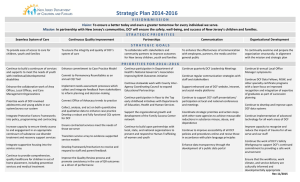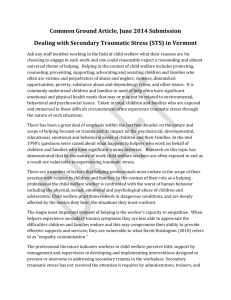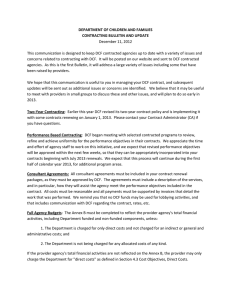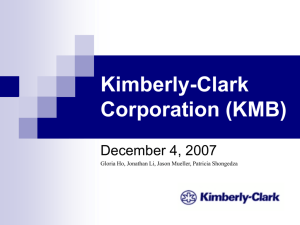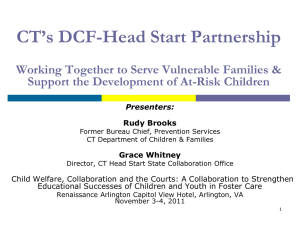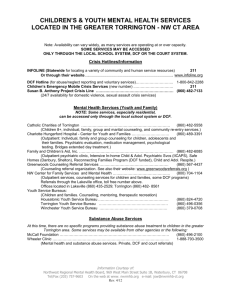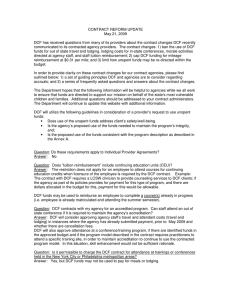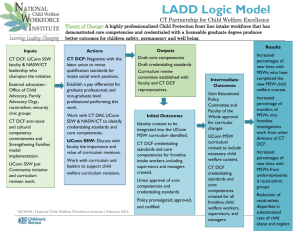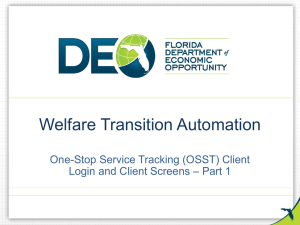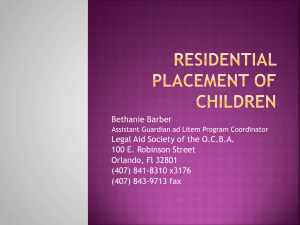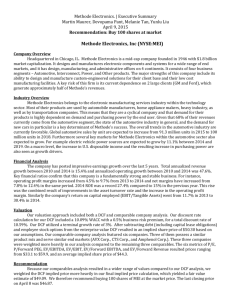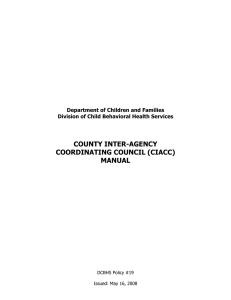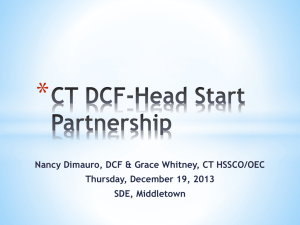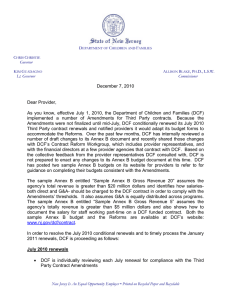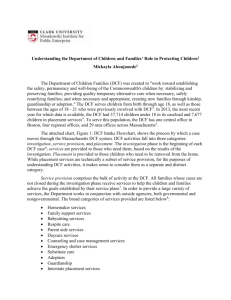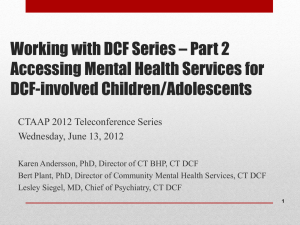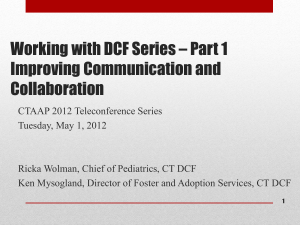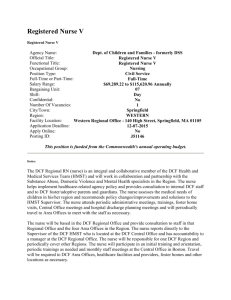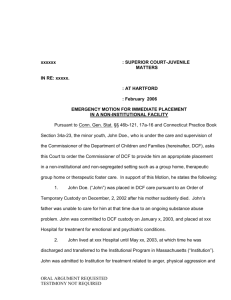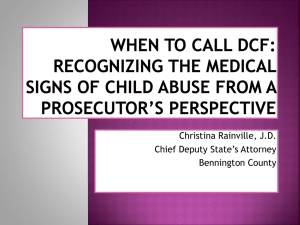DCF Trauma-Based Initiatives - Center for Children`s Advocacy
advertisement
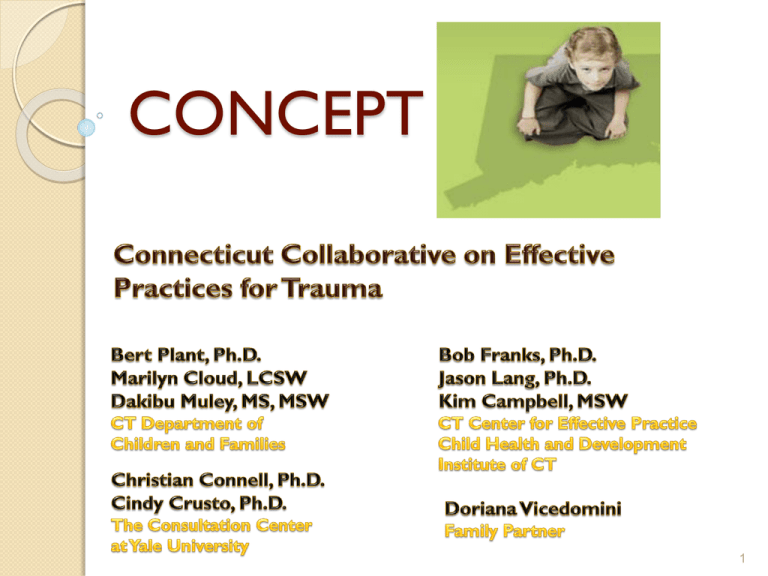
CONCEPT 1 Grant $3.2 million 5-year grant Awarded by the Administration for Children and Families 55 Applicants – CT 1 of 5 States Nationally ◦Selection based on existing foundation, clear plan, and highly qualified team Focus is two-fold ◦ Enhance the Department's capacity to identify and respond to children who have experienced trauma; Develop supports for staff experiencing vicarious trauma ◦ Install evidence-based treatment (EBT) for children in child welfare system and the greater community 2 CONCEPT Partners Connecticut Department of Children and Families (DCF) Regions, Research and Evaluation, Workforce Academy, Clinical and Community, Child and Adolescent Development, Facilities CT Center for Effective Practice/Child Health and Development Institute of CT (Coordinating Center) The Consultation Center at Yale University (Evaluators) Yale Child Study Center (CFTSI Developer) Judith Cohen, MD (TF-CBT Developer) Community Provider Agencies Family Partners National Child Traumatic Stress Network (NCTSN), National Center at Duke University 3 Target Population Universal Trauma Screening of all DCF children Evidence Based Treatments available to eligible DCF children, ages 5-18 ◦ Outpatient clinics ◦ DCF facilities Solnit Center South (Riverview Hospital) Solnit Center North (Connecticut Children’s Place) Connecticut Juvenile Training School (CJTS) 4 Proposed Evidence Based Treatments Trauma-Focused Cognitive Behavioral Therapy (TF-CBT) Short-term caregiver & child EBT for child traumatic stress Previous implementation at 16 outpatient clinics Child and Family Traumatic Stress Intervention (CFTSI) 4-session acute EBT (Berkowitz, Stover, & Marans, 2011) Prevent PTSD/child traumatic stress 5 Work Groups Screening/Workforce Development ◦ Develop system of trauma screening for all DCF children and referral for assessment/treatment ◦ Develop trauma-informed workforce ◦ Identify methods for addressing secondary traumatic stress in workers Policy/Procedures ◦ Review related DCF policies and make recommendations for making them trauma-informed 6 Work Groups Learning Collaboratives ◦ Develop training to expand availability of traumafocused evidence based treatments for DCF children across state and in DCF facilities ◦ Facilitate through Learning Collaborative approach Data/QI/Evaluation ◦ Identify data requirements to institute trauma screening/referral in DCF and data tracking/feedback for Learning Collaboratives ◦ Develop data systems for DCF/Learning Collaboratives ◦ Provide support/assistance for evaluation of the grant 7 Evaluation Components Process evaluation ◦ Document implementation and fidelity of program components ◦ Identify facilitators and barriers to implementation Cost evaluation ◦ Measure costs associated with CONCEPT program activities Outcome evaluation ◦ Assess effects of CONCEPT program activities on planned outcomes at the child, family, agency/provider, and system levels 8 Summary Within DCF ◦ ◦ ◦ ◦ Trauma Screening & Assessment Workforce Development Policy & Practices Secondary Traumatic Stress Within Community ◦ TF-CBT – Outpatient Clinics & DCF Facilities ◦ CFTSI- Outpatient Clinics Evaluation over 5 years 9
